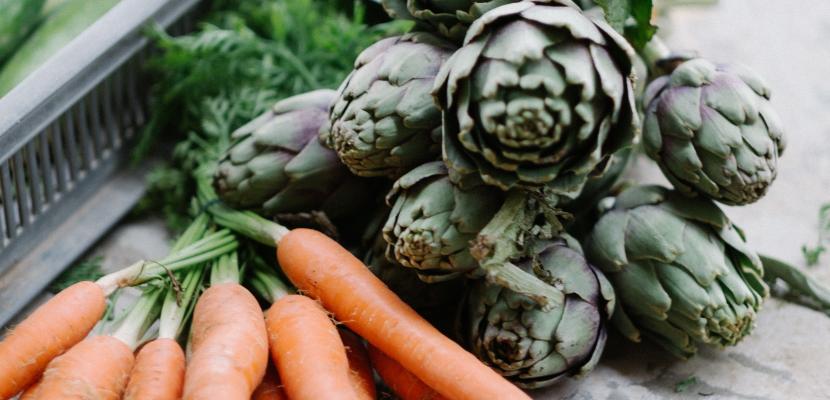Image

Food Pilot: an application and analysis center for the food processing industry
Published on 23 December 2020

Belgium
This is the good practice's implementation level. It can be national, regional or local.
About this good practice
The Food Pilot helps companies, labs and policy makers with agri-food challenges. It offers a package of services ranging from the first innovative idea to a successful final product. The client can choose 5 support services, accompanied by a project-specific package of testing, analysis and advice.
- Individual support: analysing the question, giving advice, discussing the appropriate tests. A personal expert coordinates the specific steps, such as lab analyses, pilot tests, advisory support or the creation of a knowledge overview.
- Overview of current knowledge: a scientific literature study ensures that only the most up-to-date knowledge is applied to the project. This can include the choice of ingredients, a process technology, aspects of legislation...
- Recipe and process development: the advice is tailor-made. The first consultation is free and without obligation.
- Pilot tests: The Food Pilot has more than 50 food processing pilot devices, from conventional basic equipment to innovative technologies. On these flexible, semi-industrial production lines new ingredients, recipes or processes are tested without stopping your own production line. A pilot test gives you representative results, which can teach you to increase the production.
- Lab analyses: The food industry always needs to guarantee the product quality. Authorities need reliable, high-level analyses, which are offered by ILVO, with competence guaranteed by working under the ISO 17025 norm.
- Individual support: analysing the question, giving advice, discussing the appropriate tests. A personal expert coordinates the specific steps, such as lab analyses, pilot tests, advisory support or the creation of a knowledge overview.
- Overview of current knowledge: a scientific literature study ensures that only the most up-to-date knowledge is applied to the project. This can include the choice of ingredients, a process technology, aspects of legislation...
- Recipe and process development: the advice is tailor-made. The first consultation is free and without obligation.
- Pilot tests: The Food Pilot has more than 50 food processing pilot devices, from conventional basic equipment to innovative technologies. On these flexible, semi-industrial production lines new ingredients, recipes or processes are tested without stopping your own production line. A pilot test gives you representative results, which can teach you to increase the production.
- Lab analyses: The food industry always needs to guarantee the product quality. Authorities need reliable, high-level analyses, which are offered by ILVO, with competence guaranteed by working under the ISO 17025 norm.
Resources needed
It is difficult to determine how many people are exactly deployed in the Food Pilot, because many also fulfil other tasks. ILVO has 645 employees, good for 415 FTEs. A share of them supports the Food Pilot, with a contribution to knowledge building, maintenance, performance analyses, pilot tests...
Evidence of success
20.000 food analyses/year
550 Pilot trials/year
400 Food companies/year
100 Advices/year
5 workshops or seminars/year
The Food Pilot has already led to a large number of realisations:
-Empro produces high-quality proteins from chicken side streams
-Talina develops hibiscus drink
-Karma Karma launches an oatmeal cup
-Inex reintroduces the Bambix grow milk and grow drink (soy)
-Chicory grower Cools and croquettes manufacturer Gastonello develop a “Chicory Croquette”
550 Pilot trials/year
400 Food companies/year
100 Advices/year
5 workshops or seminars/year
The Food Pilot has already led to a large number of realisations:
-Empro produces high-quality proteins from chicken side streams
-Talina develops hibiscus drink
-Karma Karma launches an oatmeal cup
-Inex reintroduces the Bambix grow milk and grow drink (soy)
-Chicory grower Cools and croquettes manufacturer Gastonello develop a “Chicory Croquette”
Potential for learning or transfer
The Food Pilot shows that intensive cooperation between the government and the market can pay off.
Although this is a large scale and capital intensive project, it holds a lot of potential for learning or transfer. An example: The Food Pilot started in 1950 as the Belgian National Dairy Station. The dairy industry and research institutes used this Station to study and optimise the processing of dairy products. The Dairy Station created many new cheeses as well as new yoghurts, butters, cream and dairy desserts.
In other European regions, smaller and less capital intensive pilot stations could be set up that focus on the specific needs for that region.
Although this is a large scale and capital intensive project, it holds a lot of potential for learning or transfer. An example: The Food Pilot started in 1950 as the Belgian National Dairy Station. The dairy industry and research institutes used this Station to study and optimise the processing of dairy products. The Dairy Station created many new cheeses as well as new yoghurts, butters, cream and dairy desserts.
In other European regions, smaller and less capital intensive pilot stations could be set up that focus on the specific needs for that region.
Further information
Website
Good practice owner
You can contact the good practice owner below for more detailed information.
Organisation
Flanders' Food & ILVO

Belgium
Prov. Oost-Vlaanderen
Contact
European Projects Coordinator